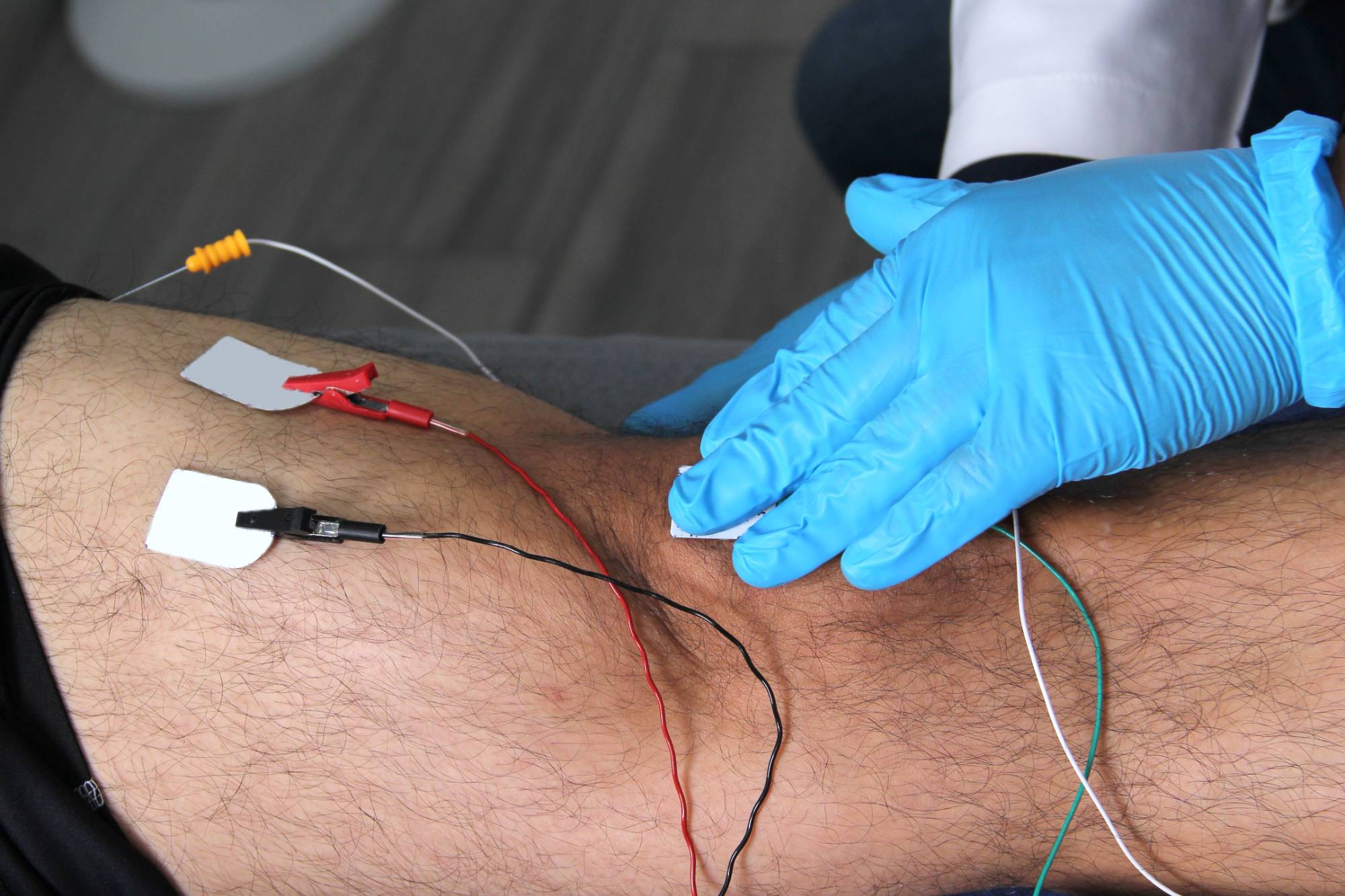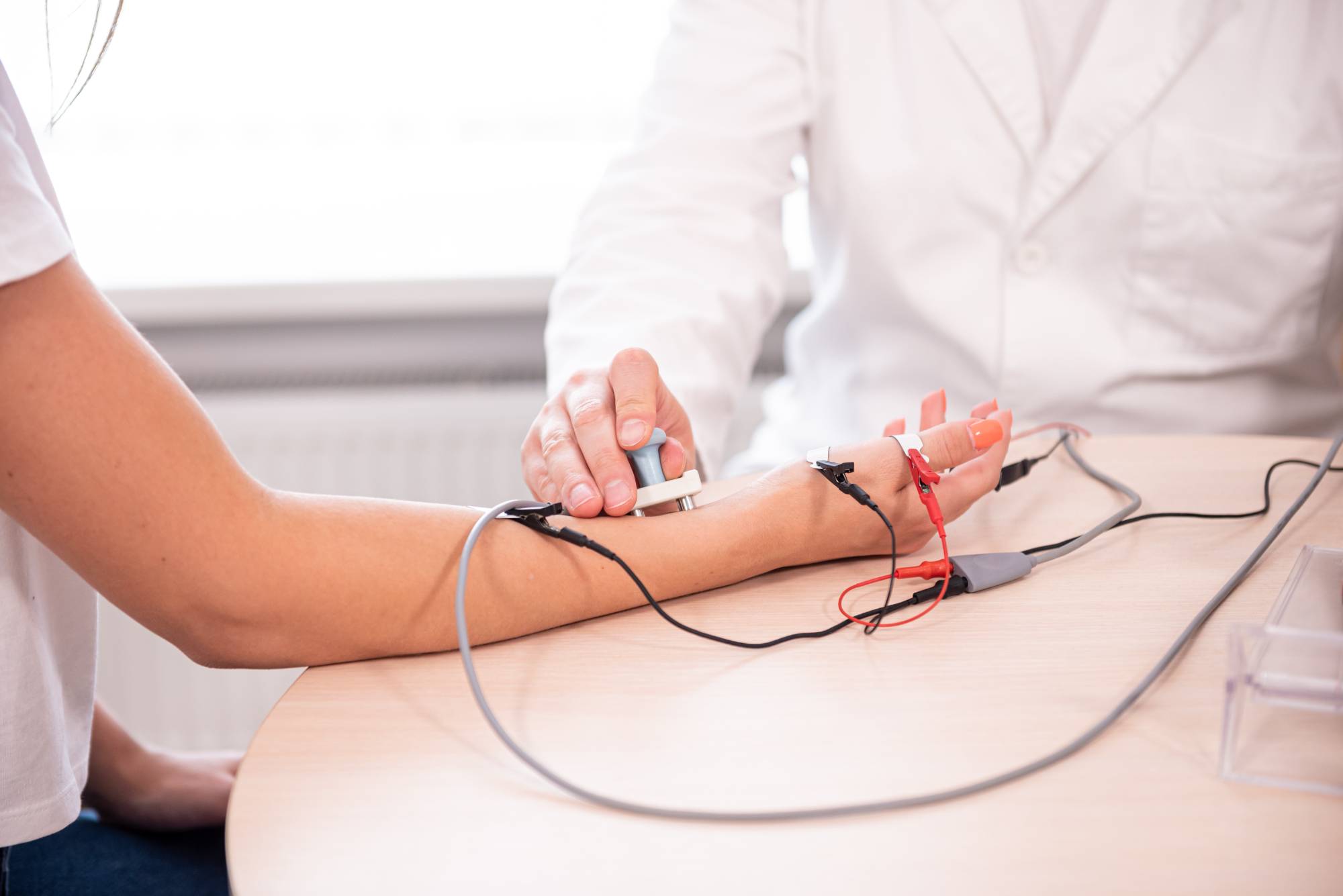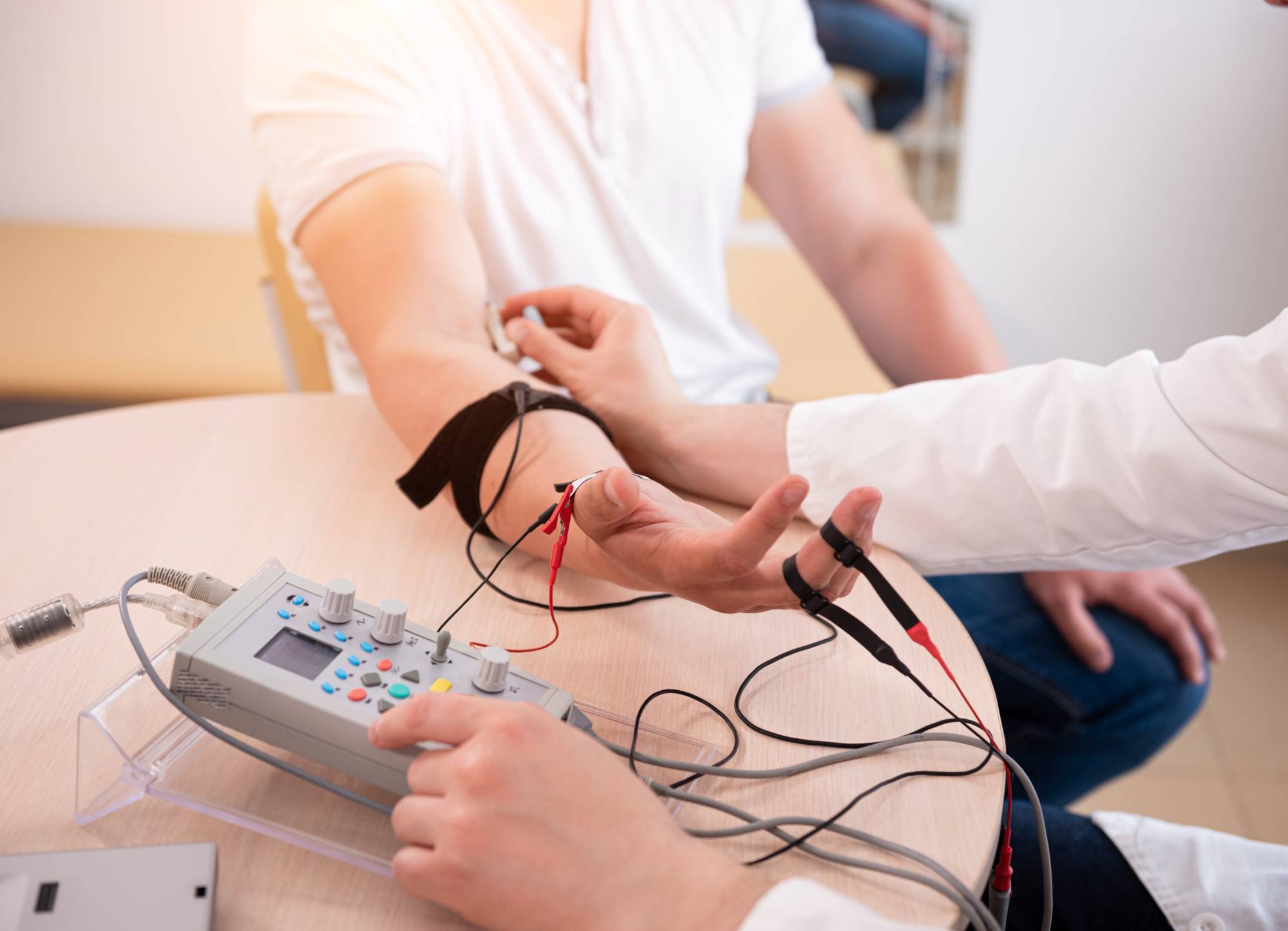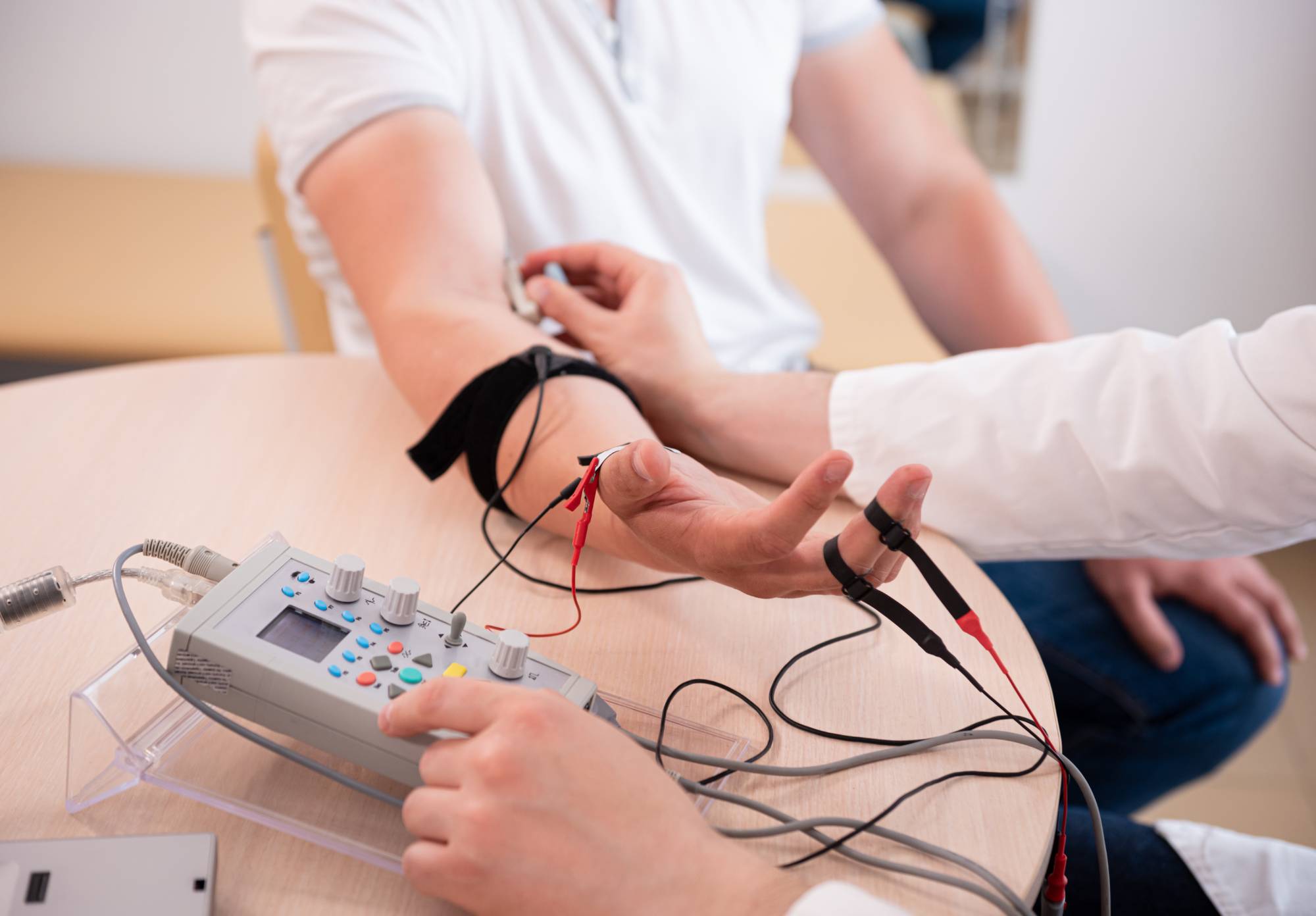Advanced electromyography testing that pinpoints exactly what’s causing your symptoms so you can move forward with confidence.

Reviews

You’ve been dealing with unexplained numbness, tingling, or muscle weakness for too long. EMG testing gives you the diagnostic clarity you need to stop guessing and start treating the real problem.
Our electromyography and nerve conduction studies measure how well your nerves and muscles communicate. When something’s not working right, we can see exactly where the breakdown is happening. That means no more wondering if it’s serious, no more trying treatments that don’t address the root cause.
You’ll leave with clear answers about your condition and a path forward. Whether it’s carpal tunnel, pinched nerves, muscle disorders, or something else entirely, you’ll know what you’re dealing with and what your options are.
We’ve been providing comprehensive neurological testing and spine care to South Florida residents for years. Our specialists understand that getting accurate diagnostic results is the first step toward feeling better.
We’ve performed thousands of EMG tests and nerve conduction studies. Our team knows how to make the process as comfortable as possible while ensuring you get the precise information you need. We work directly with your referring physician to coordinate your care and make sure nothing falls through the cracks.
You’re not just getting a test – you’re getting answers from specialists who understand exactly what you’re going through.

Your EMG test starts with a consultation where we review your symptoms and medical history. We’ll explain exactly what we’re looking for and what the testing will involve.
The nerve conduction study comes first. We place small electrodes on your skin and send mild electrical pulses to measure how fast your nerves transmit signals. Most people describe it as feeling like small, brief shocks – uncomfortable but not painful.
Next is the electromyography portion. We use a thin needle electrode to measure electrical activity in your muscles. You might feel some discomfort, similar to getting blood drawn, but it’s typically well-tolerated. The entire process usually takes 30-60 minutes depending on which areas we’re testing.
We’ll explain your results right away and provide a detailed report to your referring physician. You’ll understand what we found and what it means for your treatment options.

Ready to get started?
Our EMG testing evaluates both nerve function and muscle response to diagnose conditions like carpal tunnel syndrome, pinched nerves, herniated discs affecting nerve function, peripheral neuropathy, and muscle disorders. We test multiple areas in a single session when needed.
You’ll receive a comprehensive evaluation that includes both nerve conduction studies and electromyography testing. We coordinate with your insurance to minimize your out-of-pocket costs and work with your referring physician to ensure your results are integrated into your overall treatment plan.
Our Country Walk location makes it convenient for residents throughout South Florida to access specialized neurological testing without traveling to downtown Miami. We maintain the same high standards and advanced equipment you’d find at major medical centers.

New York:
Florida:
Support